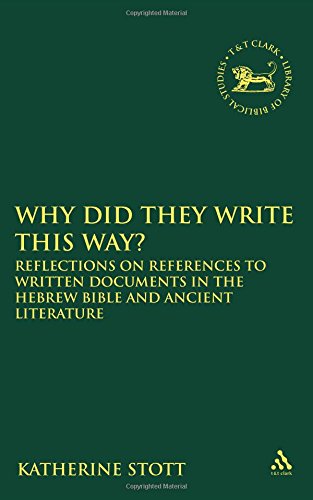

Most ebook files are in PDF format, so you can easily read them using various software such as Foxit Reader or directly on the Google Chrome browser.
Some ebook files are released by publishers in other formats such as .awz, .mobi, .epub, .fb2, etc. You may need to install specific software to read these formats on mobile/PC, such as Calibre.
Please read the tutorial at this link: https://ebookbell.com/faq
We offer FREE conversion to the popular formats you request; however, this may take some time. Therefore, right after payment, please email us, and we will try to provide the service as quickly as possible.
For some exceptional file formats or broken links (if any), please refrain from opening any disputes. Instead, email us first, and we will try to assist within a maximum of 6 hours.
EbookBell Team

4.0
36 reviewsThis book examines the character and function of the documents mentioned in the biblical texts in relation to comparable references in literature from wider antiquity. Citing various references to written documents in the Hebrew Bible, Stott takes into consideration both those references that may point to external sources, for example, the many literary citations in the books of Kings and Chronicles, as well as certain other documents that play a role in the narrative, such as "the book of the law" in 2 Kings, the scrolls of Jeremiah, and the tablets of the law.
The aim of this study is not to determine to which texts external to the world of the narrative, if any, these documents refer, or to identify the content of these documents, or to reconstruct their origins and historical development. Instead, the primary focus is to understand these references within their literary context, asking why indeed they are mentioned at all and what purpose they serve in the narrative, regardless of whether they existed or not in the "external world", or whether the stories about them have basis in historical reality "as it happened